Business
Israeli cabinet approves West Bank land registration, Palestinians condemn ’de-facto annexation’

Business
Diamond Hill Select Strategy Q4 2025 Portfolio Review

Diamond Hill Capital Management, Inc. is a wholly owned subsidiary of Diamond Hill Investment Group, Inc. Diamond Hill Investment Group is a publicly traded company, and its shares trade on the NASDAQ (Ticker: DHIL). Note: This account is not managed or monitored by Diamond Hill Capital Management, and any messages sent via Seeking Alpha will not receive a response. For inquiries or communication, please use Diamond Hill Capital Management’s official channels.
Business
Democrats willing to spend tens of millions to reshape Virginia voting maps, top lawmaker says
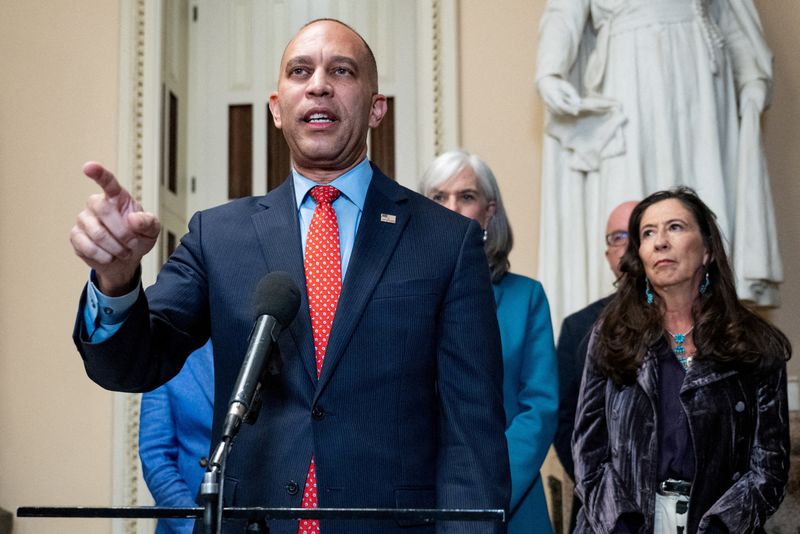

Democrats willing to spend tens of millions to reshape Virginia voting maps, top lawmaker says
Business
Nebius: AI Discount Bin

Nebius: AI Discount Bin
Business
Victory Sycamore Small Company Opportunity Fund Q4 2025 Commentary

Victory Sycamore Small Company Opportunity Fund Q4 2025 Commentary
Business
BlackRock Global Equity Market Neutral Fund Q4 2025 Commentary

BlackRock Global Equity Market Neutral Fund Q4 2025 Commentary
Business
Andrew's time as trade envoy should be investigated, says Vince Cable
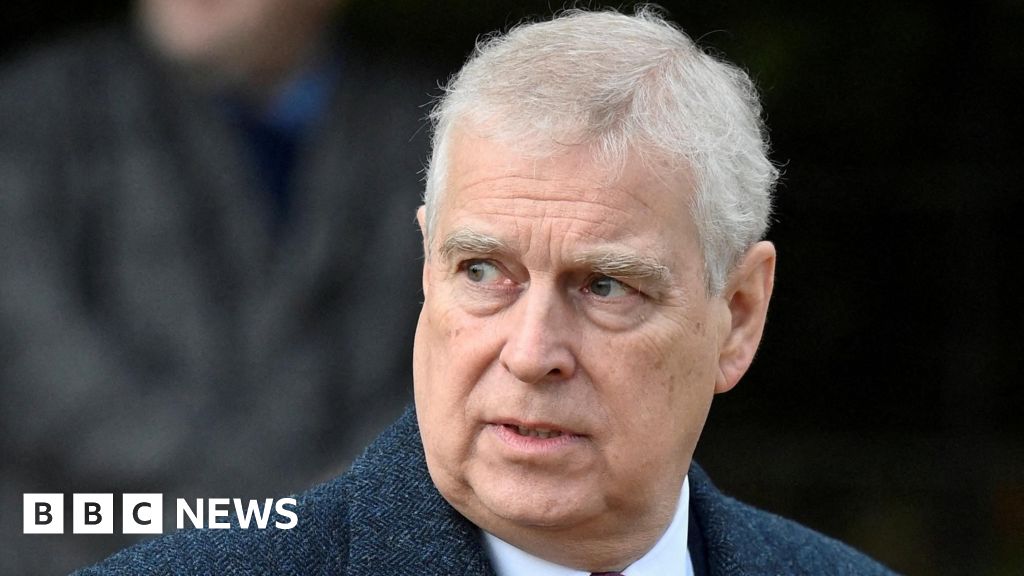
The former prince’s alleged actions were “totally unacceptable”, the ex-business secretary says.
Business
Trump told Netanyahu in December he would support Israeli strikes on Iran’s missile program, CBS News reports


Trump told Netanyahu in December he would support Israeli strikes on Iran’s missile program, CBS News reports
Business
Touchstone Dividend Equity Fund Q4 2025 Commentary

At Touchstone Investments, we recognize that not all mutual fund companies are created equal. Our commitment to being Distinctively Active means the employment of a fully integrated and rigorous process for identifying and partnering with asset managers who sub-advise our mutual funds and advocating a robust approach to portfolio construction that either uses standalone active strategies or serves as a complement to passive strategies. That is the power of Distinctively Active.
Touchstone Funds are offered nationally through intermediaries including broker-dealers, financial planners, registered investment advisors and institutions by Touchstone Securities, Inc. For more information please call 800.638.8194 or visit www.touchstoneinvestments.com
Specialties
Touchstone Investments helps investors achieve their financial goals by providing access to a distinctive selection of institutional asset managers who are known and respected for proficiency in their specific area of expertise.
Touchstone Securities Inc. is a registered broker-dealer and member FINRA and SIPC Note: This account is not managed or monitored by Touchstone Investments, and any messages sent via Seeking Alpha will not receive a response. For inquiries or communication, please use Touchstone Investments’s official channels.
Business
Wall Street Brunch: Walmart Weighs In As Q4 GDP Hits (undefined:WMT)

tupungato/iStock Editorial via Getty Images

Listen below or on the go via Apple Podcasts and Spotify
Walmart features in a holiday-shortened week with 57 S&P 500 reports. (0:17) Economists expect Q4 GDP growth near 2.8%. (1:10) Supreme Court could rule soon on Trump tariffs. (1:37)
The following is an abridged transcript:
It’s a holiday-shortened week for Wall Street, with markets closed Monday for Presidents’ Day — officially Washington’s Birthday, and observed as such by the NYSE.
But in the four trading days, there’s still plenty on the calendar, with 57 S&P 500 (SP500) companies reporting results.
Walmart (WMT) is the marquee name. The retail giant is expected to report fiscal Q4 EPS of $0.73 on revenue of $188.54B when it reports Thursday. Same-store sales are forecast to rise about 4.2%. Walmart also joined the $1T market-cap club last week.
Seeking Alpha analyst Grassroots Trading says Walmart is aggressively integrating AI — including “Sparky” — to drive efficiency and profitability, narrowing the gap with Amazon (AMZN). But they rate the stock a Strong Sell, arguing the valuation looks extreme, with limited margin of safety if multiples revert.
Also on the earnings calendar:
Palo Alto Networks (PANW) and Medtronic (MDT) report Tuesday, followed by DoorDash (DASH) and Occidental (OXY) on Wednesday.
On the economic front, the first look at Q4 GDP is due Friday, with economists expecting 2.8% annualized growth.
Wells Fargo says the underlying fundamentals still look solid — but estimates growth could run closer to 1.6% if you factor in the government shutdown’s drag on headline activity.
Also due Friday are the December income and spending figures, which include the core PCE price index — the Fed’s preferred inflation gauge. Core PCE is forecast to tick up to 3% year over year.
In Washington, a Supreme Court ruling on President Trump’s tariffs could come as soon as Friday. The court has flagged three opinion days: Feb. 20, Feb. 24, and Feb. 25.
Prediction markets indicate SCOUTS will rule against the tariffs. Kalshi implies about a 27% chance the court rules in favor, while Polymarket is around 26% as of today.
In the news this weekend, Nvidia (NVDA) says CEO Jensen Huang won’t attend the India AI Impact Summit in New Delhi “due to unforeseen circumstances.” But Nvidia said it remains “deeply committed” to the summit and to India’s rapidly advancing AI ecosystem.
The event runs Feb. 16 through Feb. 20, and is expected to draw heads of state — including French President Emmanuel Macron — along with top tech leaders such as Sundar Pichai of Alphabet (GOOG) (GOOGL) and Sam Altman of OpenAI (OPENAI).
For income investors, Chevron (CVX) goes ex-dividend Tuesday, paying out March 10.
ConocoPhillips (COP) and Hasbro (HAS) go ex-dividend Wednesday — ConocoPhillips pays out March 2, and Hasbro pays March 4.
And Microsoft (MSFT) goes ex-dividend Thursday, with a March 12 payout date.
And in the Wall Street Research Corner, Goldman Sachs has launched a software pair-trade basket — going long on names it sees as more insulated from AI disruption, and short on those it sees as more vulnerable.
On the long side are names such as Cloudflare (NET), CrowdStrike (CRWD), Palo Alto Networks (PANW), Oracle (ORCL), and Microsoft (MSFT).
On the short side, Goldman flagged Monday.com (MNDY), Salesforce (CRM), DocuSign (DOCU), Accenture (ACN) and Duolingo (DUOL).
Business
Treasury official Hurley set to leave his post after friction with Bessent, Bloomberg News reports
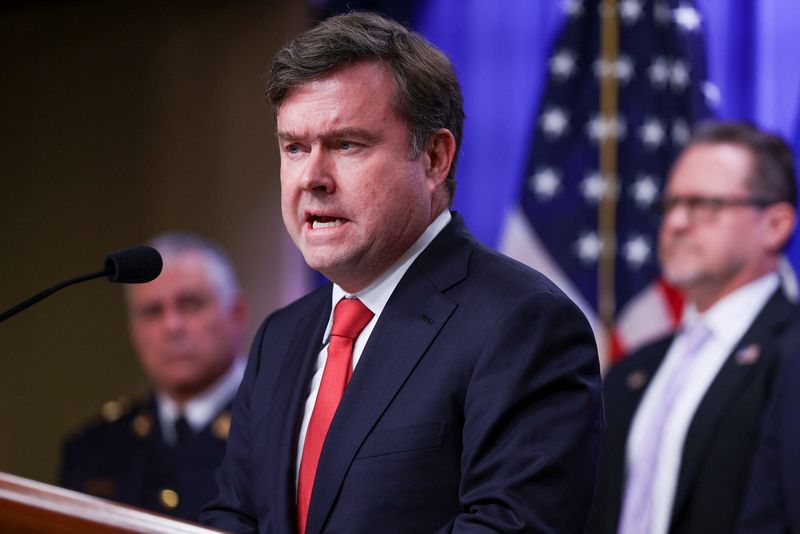

Treasury official Hurley set to leave his post after friction with Bessent, Bloomberg News reports
-

 Sports4 days ago
Sports4 days agoBig Tech enters cricket ecosystem as ICC partners Google ahead of T20 WC | T20 World Cup 2026
-

 NewsBeat6 days ago
NewsBeat6 days agoMia Brookes misses out on Winter Olympics medal in snowboard big air
-

 Tech5 days ago
Tech5 days agoSpaceX’s mighty Starship rocket enters final testing for 12th flight
-
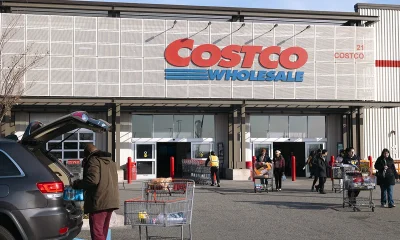
 Business7 days ago
Business7 days agoCostco introduces fresh batch of new bakery and frozen foods: report
-

 NewsBeat7 days ago
NewsBeat7 days agoWinter Olympics 2026: Team GB’s Mia Brookes through to snowboard big air final, and curling pair beat Italy
-

 Sports7 days ago
Sports7 days agoBenjamin Karl strips clothes celebrating snowboard gold medal at Olympics
-

 Tech16 hours ago
Tech16 hours agoLuxman Enters Its Second Century with the D-100 SACD Player and L-100 Integrated Amplifier
-

 Video2 days ago
Video2 days agoThe Final Warning: XRP Is Entering The Chaos Zone
-
![Heathrow has said passenger numbers were 60% lower in November than before the coronavirus pandemic and there were “high cancellations” among business travellers concerned about being trapped overseas for Christmas as Omicron spreads. The UK’s largest airport said the government’s travel restrictions had dealt a fresh blow to travel confidence and predicted it was likely to take several years for passenger numbers to return to pre-pandemic levels. This week ministers said passengers arriving in the UK would have to take a pre-departure Covid test, as well as a post-flight test, because of fears about the spread of the new variant. “[The] high level of cancellations by business travellers concerned about being trapped overseas because of pre-departure testing shows the potential harm to the economy of travel restrictions,” the airport said in an update. Heathrow said the drop in traveller confidence owing to the new travel restrictions had negated the benefit of reopening the all-important corridor to North America for business and holiday travel last month. Eleven African countries have been added to the government’s red list, requiring travellers to quarantine before reuniting with families. “By allowing Brits to isolate at home, ministers can make sure they are reunited with their loved ones this Christmas,” said John Holland-Kaye, the chief executive of Heathrow. “It would send a strong signal that restrictions on travel will be removed as soon as safely possible to give passengers the confidence to book for 2022, opening up thousands of new jobs for local people at Heathrow. Let’s reunite families for Christmas.” Heathrow said that if the government could safely signal that restrictions would be lifted soon, then employers at Heathrow would have the confidence to hire thousands of staff in anticipation of a boost in business next summer. The airport is expecting a slow start to 2022, finishing next year with about 45 million passengers – just over half of pre-pandemic levels. This week Tui, Europe’s largest package holiday operator, said it expected bookings for next summer to bounce back to 2019 levels. However, Heathrow said on Friday not to expect the aviation industry to recover for several years. “We do not expect that international travel will recover to 2019 levels until at least all travel restrictions (including testing) are removed from all the markets that we serve, at both ends of the route, and there is no risk of new restrictions, such as quarantine, being imposed,” the airport said.](https://wordupnews.com/wp-content/uploads/2026/02/shutterstock_1100012546-scaled-400x240.jpg)
![Heathrow has said passenger numbers were 60% lower in November than before the coronavirus pandemic and there were “high cancellations” among business travellers concerned about being trapped overseas for Christmas as Omicron spreads. The UK’s largest airport said the government’s travel restrictions had dealt a fresh blow to travel confidence and predicted it was likely to take several years for passenger numbers to return to pre-pandemic levels. This week ministers said passengers arriving in the UK would have to take a pre-departure Covid test, as well as a post-flight test, because of fears about the spread of the new variant. “[The] high level of cancellations by business travellers concerned about being trapped overseas because of pre-departure testing shows the potential harm to the economy of travel restrictions,” the airport said in an update. Heathrow said the drop in traveller confidence owing to the new travel restrictions had negated the benefit of reopening the all-important corridor to North America for business and holiday travel last month. Eleven African countries have been added to the government’s red list, requiring travellers to quarantine before reuniting with families. “By allowing Brits to isolate at home, ministers can make sure they are reunited with their loved ones this Christmas,” said John Holland-Kaye, the chief executive of Heathrow. “It would send a strong signal that restrictions on travel will be removed as soon as safely possible to give passengers the confidence to book for 2022, opening up thousands of new jobs for local people at Heathrow. Let’s reunite families for Christmas.” Heathrow said that if the government could safely signal that restrictions would be lifted soon, then employers at Heathrow would have the confidence to hire thousands of staff in anticipation of a boost in business next summer. The airport is expecting a slow start to 2022, finishing next year with about 45 million passengers – just over half of pre-pandemic levels. This week Tui, Europe’s largest package holiday operator, said it expected bookings for next summer to bounce back to 2019 levels. However, Heathrow said on Friday not to expect the aviation industry to recover for several years. “We do not expect that international travel will recover to 2019 levels until at least all travel restrictions (including testing) are removed from all the markets that we serve, at both ends of the route, and there is no risk of new restrictions, such as quarantine, being imposed,” the airport said.](https://wordupnews.com/wp-content/uploads/2026/02/shutterstock_1100012546-scaled-80x80.jpg) Business6 days ago
Business6 days agoWeight-loss jabs threaten Greggs’ growth, analysts warn
-
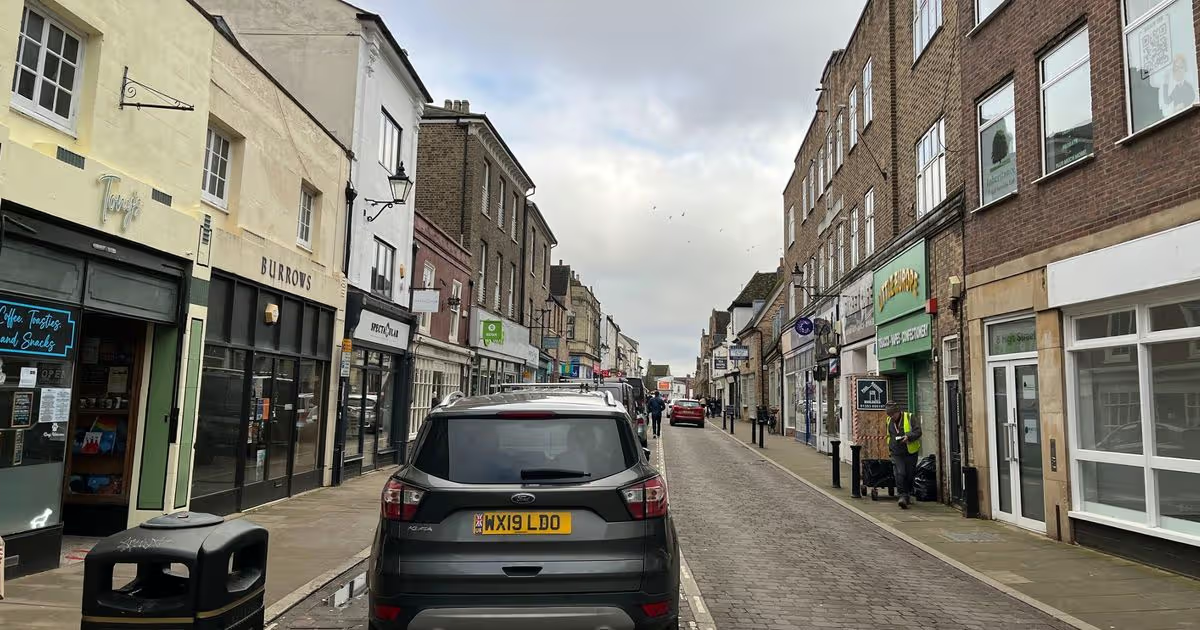
 NewsBeat6 days ago
NewsBeat6 days agoResidents say city high street with ‘boarded up’ shops ‘could be better’
-

 Crypto World4 days ago
Crypto World4 days agoPippin (PIPPIN) Enters Crypto’s Top 100 Club After Soaring 30% in a Day: More Room for Growth?
-

 Crypto World2 days ago
Crypto World2 days agoBhutan’s Bitcoin sales enter third straight week with $6.7M BTC offload
-

 Video4 days ago
Video4 days agoPrepare: We Are Entering Phase 3 Of The Investing Cycle
-

 Crypto World5 days ago
Crypto World5 days agoU.S. BTC ETFs register back-to-back inflows for first time in a month
-

 Crypto World5 days ago
Crypto World5 days agoBlockchain.com wins UK registration nearly four years after abandoning FCA process
-
Sports6 days ago
Kirk Cousins Officially Enters the Vikings’ Offseason Puzzle
-

 Crypto World5 days ago
Crypto World5 days agoEthereum Enters Capitulation Zone as MVRV Turns Negative: Bottom Near?
-

 NewsBeat2 hours ago
NewsBeat2 hours agoThe strange Cambridgeshire cemetery that forbade church rectors from entering
-

 Business3 days ago
Business3 days agoBarbeques Galore Enters Voluntary Administration
-

 Crypto World5 days ago
Crypto World5 days agoCrypto Speculation Era Ending As Institutions Enter Market










